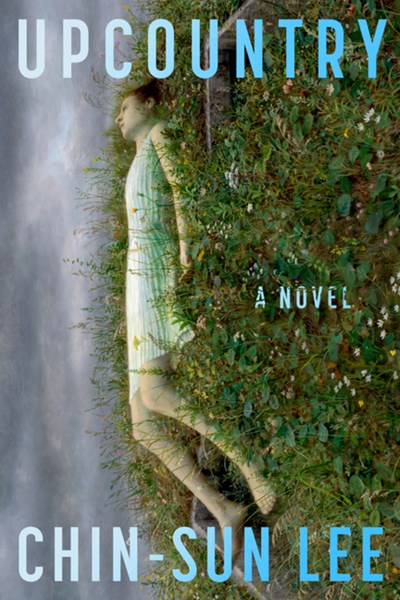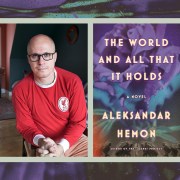[ad_1]
Upcountry, Chin-Sun Lee’s debut novel, is an enchanting, intertwining tale of three lonely women in the fictional, gossip-hungry Catskills town of Caliban. The story opens when April Ives, a local single mother, has lost her home in foreclosure to Claire Pederson, a city lawyer with upstate roots. Drawn to the property’s dilapidated beauty——“so ruined,” Claire says——the childless Pedersons are hoping to resettle upstate, renovate, and repair a muted but palpable marital strain. However, when Claire’s artist husband, Sebastian, becomes obsessed with Anna, a young, pregnant Korean-American member of a Christian religious cult called the Eternals, their lives veer dramatically off course. What unfolds from their worlds colliding, and how they navigate the fallout, with all its spiritual, emotional, financial, and existential repercussions, in the fishbowl of a small town, steer the rest of the book. With stunning precision, disquieting tension, and assured prose, Lee delivers a transporting and spellbinding story of resiliency and despair, faith and distrust, identity and community I rapidly devoured. It’s hard to believe Upcountry is her first novel. Lee holds an MFA from the New School and lives in New Orleans. We chatted online.

Sara Lippmann
Reading Upcountry, I was struck by how your novel and my book, Lech, find themselves in conversation. We’ve never met, and yet we both found ourselves grappling with similar thematic undercurrents of faith, belonging, loss, and isolation. They’re both set upstate and contain multiple viewpoints—clear overlaps, yet both novels are vastly different. Where did the seedling of your book come from?
Chin-Sun Lee
It is uncanny how similar certain themes are in our novels, though they’re so tonally different. I actually wrote the first chapter after spending the summer of 2014 near Durham, in the Catskills, and then I went back the following summer, but by 2016 I had settled in New Orleans and completed the novel there. When I started it, I was in a transitional period after uprooting my life in New York and quitting my design job to pursue writing full time. I was traveling a lot and living out of a suitcase, unsure what the future held—so the idea of “home” was a preoccupation. On one of my walks that first summer, I came across a run-down house with a drained, dilapidated pool enclosed by a chain-link fence. The image of that pool hooked into my brain; it was so clearly evidence of fortune’s reversal. This was only a few years after the recession, and its repercussions were still present, especially in rural areas. So, the idea of home and hardship were the seeds—and that pool directly inspired April’s house in the novel.
Sara Lippmann
Home—the meaning and making of home—is such a central concern that place feels like a character unto itself, riddled with conflict. Obviously, I share an affection for this region. What is it about the Catskills that felt inextricable from this particular constellation of stories?
Chin-Sun Lee
I have a dear friend whose parents own a renovated 18th-century Colonial brick farmhouse as a spare home in Greene County, which they generously offered to me rent-free. It was an incredible gift—but that’s the kind of people they are, extremely giving and invested in the arts and their local community. The book would not exist without them, and we’ve remained very close. His mother made a point of introducing me around, taking me to every function, whether it was a yard sale, barbecue, church fundraiser, or town council meeting. I really got to absorb the milieu, and was struck by how integrated different social classes were there—much more so than in Manhattan, where I think people tend to stay in their prescribed circles, defined either by income, occupation, political affiliation, race, etc. The Catskills and its proximity to the city set up a duality both economically and culturally. You had people like April in my novel, moderate or conservative blue-collar workers whose families had lived in the area for generations, and you also had liberal newcomers like Claire, from Manhattan or Brooklyn, who bought cheap, old houses and renovated them into weekend or summer homes. The housing market in the Catskills in 2014 was nothing like now; you could absolutely purchase a fixer-upper for thirty grand back then. Some locals welcomed the influx, the money and business and augmentation of their communities, while others felt resentful and suspicious. I will say that for the most part, people seemed to get along, which was quite remarkable. Of course, under the surface, there was gossip and petty resentments, which I amplified in the novel. It’s a little ironic because, for me, those two summers in the Catskills were utterly blissful and bucolic—but what I invented, since I have a dark bent, is much more ominous.
Sara Lippmann
I’m not sure if you’ve read Meander, Spiral, Explode, but structurally, your novel feels like a sunburst. The town of Caliban is in the center with the stories of various characters springing from it. How did you arrive at this structure? Why was it important for you to resist or subvert more traditional arcing and explore such a refreshing conception?
Chin-Sun Lee
Oh wow, I love that image of a sunburst. I haven’t read Meander, Spiral, Explode but now I want to! I’m flattered you found the novel’s structure refreshing and I wish I could say I arrived at it by deliberate design, but the truth is that it was more exploratory. Initially, I thought the book might be a collection of linked stories—likely because the idea of a novel felt daunting—but that impulse quickly sputtered after I realized that setting alone isn’t enough to propel a project. Still, the conceit of multiple, disparate characters contained in a small community lent itself to compression and friction, which intrigued me. And I’ve always enjoyed books and movies told from multiple POVs, where characters cross paths or even just brush against each other without ever meeting. I’m thinking of Amy Bloom’s Come to Me and Elizabeth Strout’s Olive Kitteridge, Robert Altman’s movie Short Cuts, and of course, Akira Kurosawa’s Rashomon, where the same event is told from different perspectives. I find the prismatic approach of those narratives very pleasurable because it allows you to see different angles of a world or a story, whereas, in real life, we only ever have our singular perception.
Sara Lippmann
With my polyvocal novel, I encountered considerable preemptive resistance. Comments like too many POVs will drag on the pace, dilute the story, make it too diffuse, etc., which of course, only made me dig in further. I wonder if this was your experience. Because the effect is tremendous—all of your storylines are operating at such high stakes and their interwovenness only increases their propulsivity.
Chin-Sun Lee
Thank you—and oh yes, I got those comments. It’s fine; no book is for every reader. But I really felt this book required shifting narratives, as there are three main protagonists. And I liked how multiple POVs allude to a town hall meeting, where several voices get to have their say.
Sara Lippmann
At the center of the book is Anna, a member of the Eternals, a strict Christian sect that incorporates some Jewish practices. This group straddles two worlds. They are not opposed to modern medicine. They are somewhat isolationist but also tethered to the goings about town. Theirs is a complicated symbiosis. They are not immune to secular gossip. In this way, they feel different from other cults, or even religious communities, like Hasidim, that keep more to themselves. How did you dream up the Eternals?
Chin-Sun Lee
The Eternals are based on an actual religious group in the town where I stayed. I don’t want to name the group or town (which I fictionalized as Caliban) because I don’t want this group to be maligned. Like the Eternals, they practice an archaic form of Christianity, eschewing certain modern customs while embracing others, and are fully integrated into the community. That’s where the similarities end. As soon as I encountered this group, of course, I was fascinated. But once I knew they would figure into my book, I deliberately avoided any deep-dive research and relied on invention. Which wasn’t hard, frankly—there are so many fringe religious groups in this country, nothing is beyond imagination. And I think it’s human nature to gossip, regardless of how isolated or engaged you are within a community.
Sara Lippmann
Even within their respective groups, your characters never fit in, remaining on the edges. Belonging may offer the illusion of safety but can come at the price of erasure. Faith simplifies our messy world, but it also flattens its complexity. Ultimately, it seems, faith is less about following the ordinance of God, less about yielding individual agency, and more about learning to claim that agency, to take up that space, and to believe in the self. Without giving away too much, not everything works out for everyone. What does it mean to have faith? Where does hope lie in the novel?
Chin-Sun Lee
In the novel, as in life, hope lies in knowledge and resilience. My characters face losses and betrayals, with some coming through better than others. We are tested all the time, and there’s no justice to why certain people have it so hard through no fault of their own. The unpredictability of luck and fate is a huge theme in my novel, and it’s a condition many find hard to accept. It’s what makes rule-based ideologies like religion and wellness so appealing, the idea that if you do X, Y, and Z, it will lead to a prescribed result. Those belief systems can be a source of comfort, and that has value. Also, I think we can influence the course of our lives to some degree. But there’s so much that’s out of our control. Life is chaotic, filled with the unexpected. That’s not necessarily a bad thing. Accepting life’s fragility is grounding. You can view the unknown with fear or wonderment. The latter, I think, allows for optimism.
Sara Lippmann
Did anything surprise you in the process of writing Upcountry?
Chin-Sun Lee
So much of it was a process of discovery. One thing I realized was that, especially in a novel populated with several characters, it can be easy to spin out, where you’re just writing with no direction. I didn’t outline, but around the 30K word mark, I definitely paused and considered what the main themes were and jotted down possible scenes on index cards that I would map out and rearrange as I went along—like breadcrumbs to help guide me along, even if I discarded or changed those scenes as I wrote. The other thing I discovered is, as difficult and wrenching as writing a novel can be, I am drawn to the immersive aspect of a long project. Prior to Upcountry, I only wrote stories. But a novel is this whole other scary baggy enterprise. It is entirely consuming. And I enjoy being consumed.
Sara Lippmann
What’s next in the pipeline?
Chin-Sun Lee
I recently finished a draft of a second novel, titled Soon You’ll Be Just Like Us, which takes place ten years in the future and involves Korean plastic surgery, a feminist terrorist group, climate change, and reproductive cloning. I’m excited about it, but it needs revising, and that will require concentrated focus which I don’t have right now, as I’m gearing up to launch my debut.
When I do have the time to focus, I’ll be really ready to go. Honestly, I find revisions so satisfying. Drafting can be grueling. But once you have the shape of the thing, then you can get in there and start finessing. That said, the journey of this first book isn’t over. Even though I’ve spent years with it, now it’s actually going out in the world, into the hands of readers—which is so wild to me, and exciting.

FICTION
by Chin-Sun Lee
Unnamed Press
Published on November 7, 2023

[ad_2]
Source link

